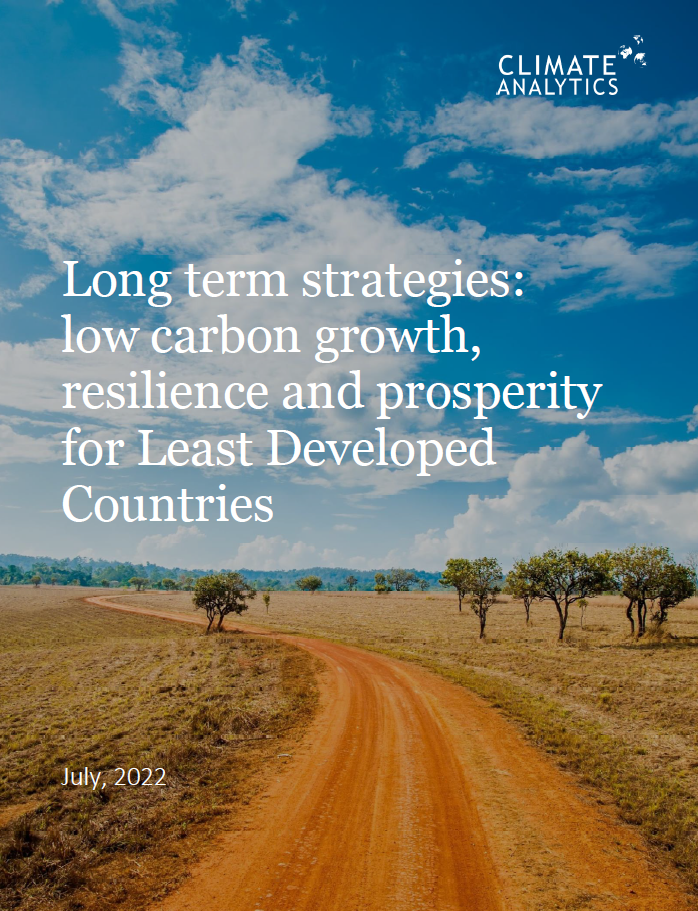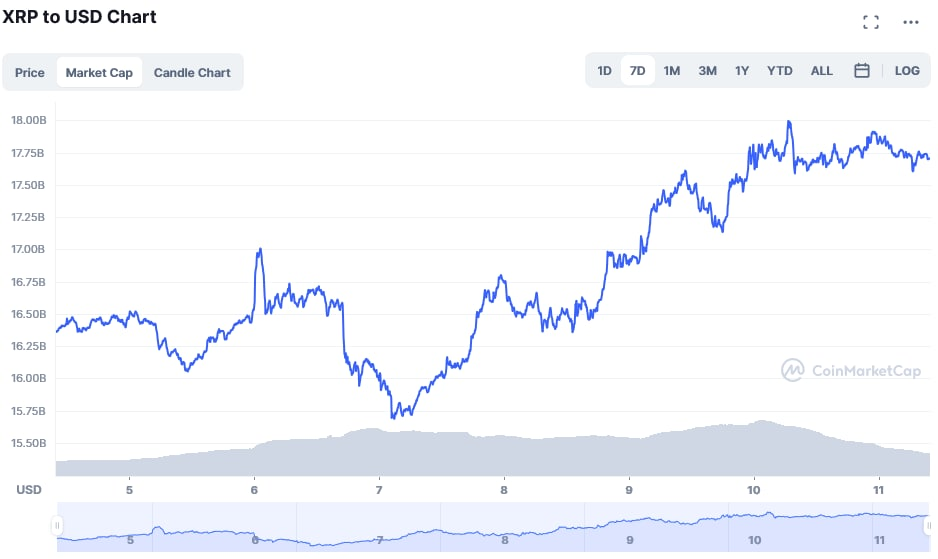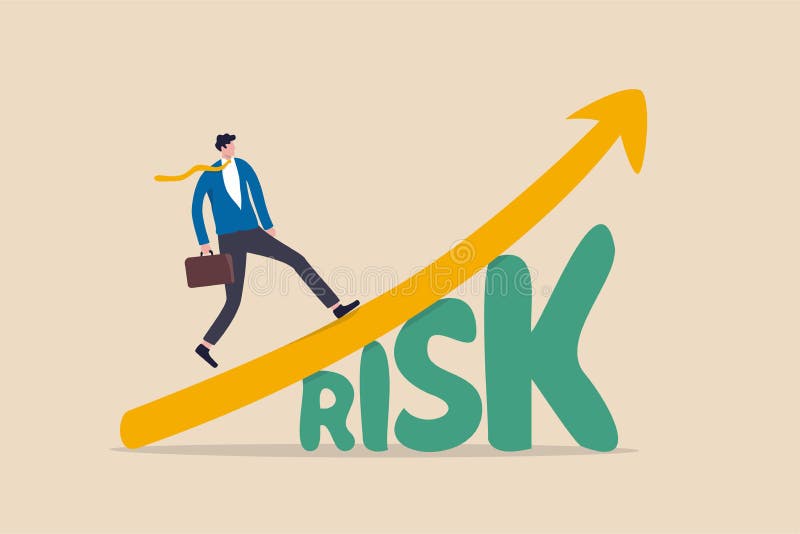Third LDC Future Forum: Building Resilience In Least Developed Countries

Table of Contents
Addressing Climate Change Vulnerability in LDCs
Least Developed Countries are disproportionately impacted by the escalating effects of climate change, facing the brunt of extreme weather events, prolonged droughts, and rising sea levels. These climate-related disasters pose significant threats to their economies, food security, and overall development progress. The forum's discussions centered on several key areas crucial for building climate resilience:
Adaptation Strategies
Investing in climate-resilient infrastructure is paramount. This includes developing robust infrastructure that can withstand extreme weather events, such as flood-resistant buildings and drought-resistant agricultural practices. Promoting sustainable agriculture, through techniques like water harvesting and climate-smart farming methods, is also critical for ensuring food security. Furthermore, developing and implementing effective early warning systems for impending climate-related disasters enables timely evacuations and mitigates potential damage.
Climate Finance
Securing increased and predictable climate finance from developed nations is undeniably crucial. The forum highlighted the need for transparent and efficient allocation of these funds, ensuring that they reach the communities that need them most. A significant obstacle remains the complexity and bureaucracy involved in accessing these funds, which often delays vital projects.
Technology Transfer
Facilitating access to climate-smart technologies and fostering knowledge sharing among LDCs is another vital aspect of building resilience. This involves transferring appropriate technology for renewable energy, efficient irrigation, and climate-resilient crop varieties. The forum emphasized the importance of capacity building programs to ensure LDCs can effectively use and maintain these technologies.
- Examples of successful adaptation projects in LDCs: The use of drought-resistant crop varieties in sub-Saharan Africa and the implementation of early warning systems for cyclones in the Pacific Islands.
- Challenges in accessing climate finance: Bureaucratic hurdles, lack of technical capacity, and insufficient coordination among various funding agencies.
- Innovative technological solutions discussed at the forum: Utilizing satellite imagery for drought monitoring and employing climate-resilient building materials.
Strengthening Economic Diversification and Sustainable Development
Moving beyond over-reliance on a few primary commodities, LDCs require significant economic diversification to achieve sustainable development. The forum underscored the importance of embracing sustainable development goals (SDGs) as a guiding framework.
Promoting Value-Added Industries
Developing local manufacturing, processing, and export capabilities is critical for boosting economic growth and reducing reliance on raw material exports. This includes investing in infrastructure, skills development, and providing incentives for businesses to establish value-added industries.
Investing in Human Capital
Education, skills development, and access to quality healthcare are fundamental for long-term economic growth and building a resilient workforce. Investing in human capital empowers individuals and enables them to contribute effectively to the economy.
Sustainable Tourism
Harnessing the potential of sustainable tourism offers significant opportunities for economic growth in LDCs. This requires careful planning to balance economic benefits with environmental protection and the preservation of cultural heritage.
- Specific examples of successful economic diversification strategies: The growth of the technology sector in Rwanda and the development of eco-tourism in Costa Rica.
- Challenges in attracting foreign direct investment: Political instability, lack of infrastructure, and bureaucratic complexities.
- The role of education and skills development in economic transformation: Equipping the workforce with the skills needed for a diversified economy and creating a skilled and competitive labor force.
Improving Governance and Institutional Capacity
Effective governance and robust institutions are the bedrock of building resilience in LDCs. The forum highlighted the crucial role of good governance in fostering sustainable development.
Promoting Transparency and Accountability
Strengthening anti-corruption measures and ensuring good governance practices are essential for building public trust and attracting investment. Transparent and accountable institutions are vital for effective resource management and service delivery.
Building Institutional Capacity
Investing in training and capacity building for government officials and civil society organizations is crucial for strengthening institutional effectiveness. This includes developing technical expertise, enhancing management skills, and promoting good governance practices.
Empowering Local Communities
Decentralization and participatory development initiatives empower local communities to participate in decision-making processes affecting their lives. This fosters ownership and increases the effectiveness of development projects.
- Case studies of successful governance reforms in LDCs: Examples of successful anti-corruption initiatives and participatory development projects.
- Challenges in combating corruption: Weak rule of law, lack of transparency, and limited accountability mechanisms.
- The role of civil society in strengthening governance: Civil society organizations can play a significant role in monitoring government performance, advocating for reforms, and promoting transparency.
Enhancing Global Partnerships and Development Cooperation
Building resilience in LDCs requires strong global partnerships and effective development cooperation. The forum emphasized the critical role of international cooperation in supporting LDC development.
Increased Development Assistance
Developed countries must honor their commitments to provide increased and predictable development assistance to LDCs. This assistance is vital for financing development projects and building resilience.
Debt Relief and Sustainable Financing
Addressing the debt burden faced by many LDCs is crucial. Exploring innovative financing mechanisms, such as debt-for-nature swaps and blended finance, can help create more sustainable financing solutions.
South-South Cooperation
Sharing experiences and best practices among developing countries – South-South cooperation – can accelerate development progress and foster mutual learning. LDCs can learn valuable lessons from other developing countries that have successfully addressed similar challenges.
- Examples of successful development partnerships: Public-private partnerships and collaborations between international organizations and LDC governments.
- Challenges in coordinating development assistance: Fragmentation of aid, lack of coordination among donors, and misalignment of aid with national priorities.
- Opportunities for South-South cooperation: Sharing knowledge and expertise in areas such as agriculture, renewable energy, and climate change adaptation.
Conclusion
The Third LDC Future Forum underscored the urgent and critical need to build resilience in Least Developed Countries. Tackling climate change vulnerability, fostering economic diversification, strengthening governance, and enhancing global partnerships are all indispensable steps towards achieving sustainable development and improving the lives of people in these nations. The forum's outcomes present a clear roadmap for future action, emphasizing the absolute necessity of continued dialogue, collaboration, and concerted efforts from all stakeholders. Let's work together to bolster the resilience-building efforts in Least Developed Countries and ensure a brighter, more sustainable future for all. Learn more about supporting initiatives focused on building resilience in Least Developed Countries and contribute to this vital cause.

Featured Posts
-
 April 17 2025 Daily Lotto Results Check Your Numbers
May 07, 2025
April 17 2025 Daily Lotto Results Check Your Numbers
May 07, 2025 -
 Wynn Casino Resort Announces New Seafood Restaurant
May 07, 2025
Wynn Casino Resort Announces New Seafood Restaurant
May 07, 2025 -
 Brillean Las Laguneras Resultados Destacados Del Torneo De Simone Biles
May 07, 2025
Brillean Las Laguneras Resultados Destacados Del Torneo De Simone Biles
May 07, 2025 -
 Nedug Papy Frantsiska Kto Stanet Sleduyuschim Papoy Rimskim
May 07, 2025
Nedug Papy Frantsiska Kto Stanet Sleduyuschim Papoy Rimskim
May 07, 2025 -
 Fakt W Onet Premium Korzystaj Z Promocyjnej Ceny
May 07, 2025
Fakt W Onet Premium Korzystaj Z Promocyjnej Ceny
May 07, 2025
Latest Posts
-
 Low Institutional Interest And High Supply Challenges Facing Xrp Etfs
May 08, 2025
Low Institutional Interest And High Supply Challenges Facing Xrp Etfs
May 08, 2025 -
 Xrp Etf Risks High Supply And Lack Of Institutional Interest
May 08, 2025
Xrp Etf Risks High Supply And Lack Of Institutional Interest
May 08, 2025 -
 Xrp Etf Disappointing Prospects Due To Supply And Low Institutional Demand
May 08, 2025
Xrp Etf Disappointing Prospects Due To Supply And Low Institutional Demand
May 08, 2025 -
 Should You Invest In Xrp After Its 400 Price Increase
May 08, 2025
Should You Invest In Xrp After Its 400 Price Increase
May 08, 2025 -
 400 Xrp Gains In 3 Months Time To Buy Or A Risky Investment
May 08, 2025
400 Xrp Gains In 3 Months Time To Buy Or A Risky Investment
May 08, 2025
